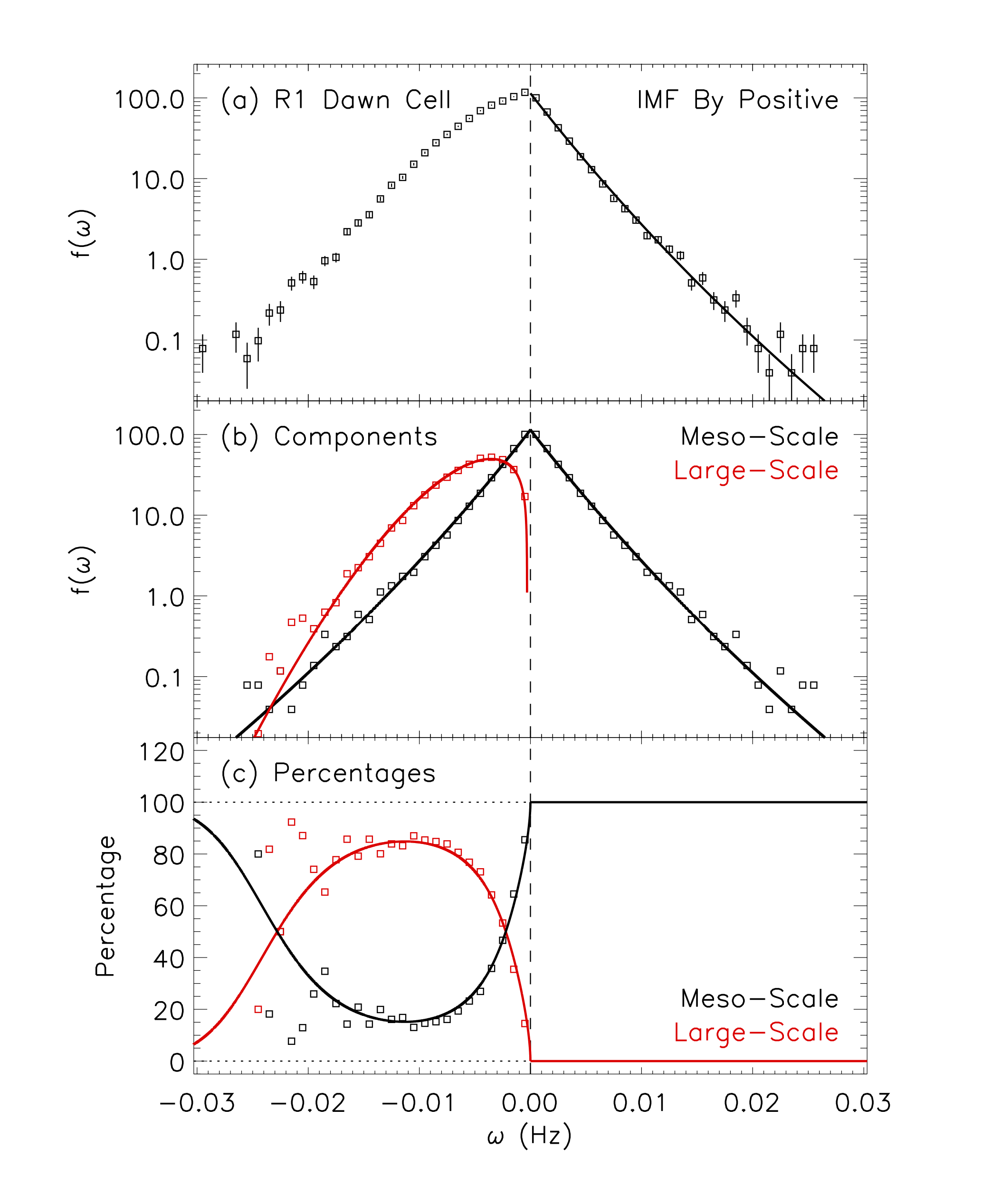MIST
Magnetosphere, Ionosphere and Solar-Terrestrial
Plasma vorticity in the high-latitude ionosphere
By Gareth Chisham (British Antarctic Survey)
Measurements of ionospheric plasma flow vorticity can be used for studying ionospheric plasma transport processes, such as convection and turbulence, over a wide range of spatial scales. This study presents an analysis of probability density functions (PDFs) of ionospheric vorticity for selected regions of the northern hemisphere high-latitude ionosphere as measured by the Super Dual Auroral Radar Network (SuperDARN) over a 6-year interval (2000-2005 inclusive). Making certain assumptions, the observed asymmetric vorticity PDFs can be decomposed into two separate components: (1) A single-sided function that results from the large-scale vorticity inherent in the ionospheric convection pattern, driven by magnetic reconnection; (2) A symmetric double-sided function that results from meso-scale vorticity that derives from fluid processes such as turbulence, and from measurement uncertainties.

Being able to model ionospheric vorticity in this way will help to improve models of ionospheric plasma flow that are often used in larger-scale system models. At the present time, these plasma flow models typically only consider the larger-scale convection flow. Our observation of a significant meso-scale flow vorticity component due to turbulence will have implications for the fidelity of these models.
See paper for further details: Chisham, G. and Freeman, M. P. (2023). Separating contributions to plasma vorticity in the high-latitude ionosphere from large-scale convection and meso-scale turbulence. Journal of Geophysical Research: Space Physics, 128, e2023JA031885, https://doi.org/10.1029/2023JA031885.